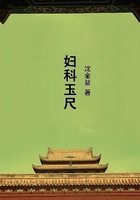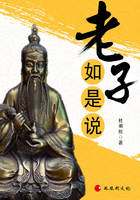Early in '64 the order had gone round for negroes to be enrolled as soldiers, and again no rebel felt more outraged than Chadwick Buford. Wolford, his commander, was dishonorably dismissed from the service for bitter protests and harsh open criticism of the Government, and Chad, himself, felt like tearing off with his own hands the straps which he had won with so much bravery and worn with so much pride. But the instinct that led him into the Union service kept his lips sealed when his respect for that service, in his own State, was well-nigh gone--kept him in that State where he thought his duty lay. There was need of him and thousands more like him. For, while active war was now over in Kentucky, its brood of evils was still thickening. Every county in the State was ravaged by a guerilla band--and the ranks of these marauders began to be swelled by Confederates, particularly in the mountains and in the hills that skirt them. Banks, trains, public vaults, stores, were robbed right and left, and murder and revenge were of daily occurrence. Daws Dillon was an open terror both in the mountains and in the Bluegrass. Hitherto the bands had been Union and Confederate but now, more and more, men who had been rebels joined them. And Chad Buford could understand. For, many a rebel soldier--"hopeless now for his cause," as Richard Hunt was wont to say, "fighting from pride, bereft of sympathy, aid, and encouragement that he once received, and compelled to wring existence from his own countrymen; a cavalryman on some out-post department, perhaps, without rations, fluttering with rags; shod, if shod at all, with shoes that sucked in rain and cold; sleeping at night under the blanket that kept his saddle by day from his sore-backed horse; paid, if paid at all, with waste paper; hardened into recklessness by war--many a rebel soldier thus became a guerrilla--consoling himself, perhaps, with the thought that his desertion was not to the enemy."Bad as the methods of such men were, they were hardly worse than the means taken in retaliation. At first, Confederate sympathizers were arrested and held as hostages for all persons captured and detained by guerillas. Later, when a citizen was killed by one of these bands, four prisoners, supposed to be chosen from this class of free-booters, were taken from prison and shot to death on the spot where the deed was done. Now it was rare that one of these brigands was ever taken alive, and thus regular soldier after soldier who was a prisoner of war, and entitled to consideration as such, was taken from prison and murdered by the Commandant without even a court-martial. It was such a death that Dan Dean and Rebel Jerry had narrowly escaped. Union men were imprisoned even for protesting against these outrages, so that between guerilla and provost-marshal no citizen, whether Federal or Confederate, in sympathy, felt safe in property, life, or liberty. The better Unionists were alienated, but worse yet was to come. Hitherto, only the finest chivalry had been shown women and children throughout the war. Women whose brothers and husbands and sons were in the rebel army, or dead on the battle-field, were banished now with their children to Canada under a negro guard, or sent to prison. State authorities became openly arrayed against provost-marshals and their followers. There was almost an open clash. The Governor, a Unionist, threatened even to recall the Kentucky troops from the field to come back and protect their homes. Even the Home Guards got disgusted with their masters, and for a while it seemed as if the State, between guerilla and provost-marshal, would go to pieces. For months the Confederates had repudiated all connection with these free-booters and had joined with Federals in hunting them down, but when the State government tried to raise troops to crush them, the Commandant not only ordered his troops to resist the State, but ordered the muster-out of all State troops then in service.
同类推荐
热门推荐
治学严谨(中华民族传统美德教育读本)
本丛书筛选内容主要遵循以下原则要求:(1)坚持批判继承思想,取其精华、去其糟粕。既不全盘肯定,也不全盘否定。坚持抽象继承、演绎发展、立足当代、为我所用。(2)坚持系统整体的原则。注意各历史时期分布;注意各民族的进步人物;注意各层面人物;注意人物各侧面。做到:竖看历史五千年,纵向成条线;横看美德重实践,横向不漏面。(3)坚持古为今用,为我所用原则。在发掘美德资源时,特别挖掘古代人物故事、言论,注重寻找挖掘各阶层、各民族的传统公德、通德、同德;注重人民性、民主性、进步性、发展性、普遍性、抽象性,不求全古代,不求全个体。追妻无门:女boss不好惹
青涩蜕变,如今她是能独当一面的女boss,爱了冷泽聿七年,也同样花了七年时间去忘记他。以为是陌路,他突然向他表白,扬言要娶她,她只当他是脑子抽风,他的殷勤她也全都无视。他帮她查她父母的死因,赶走身边情敌,解释当初拒绝她的告别,和故意对她冷漠都是无奈之举。突然爆出她父母的死居然和冷家有丝毫联系,还莫名跳出个公爵未婚夫,扬言要与她履行婚约。峰回路转,破镜还能重圆吗? PS:我又开新文了,每逢假期必书荒,新文《有你的世界遇到爱》,喜欢我的文的朋友可以来看看,这是重生类现言,对这个题材感兴趣的一定要收藏起来。















